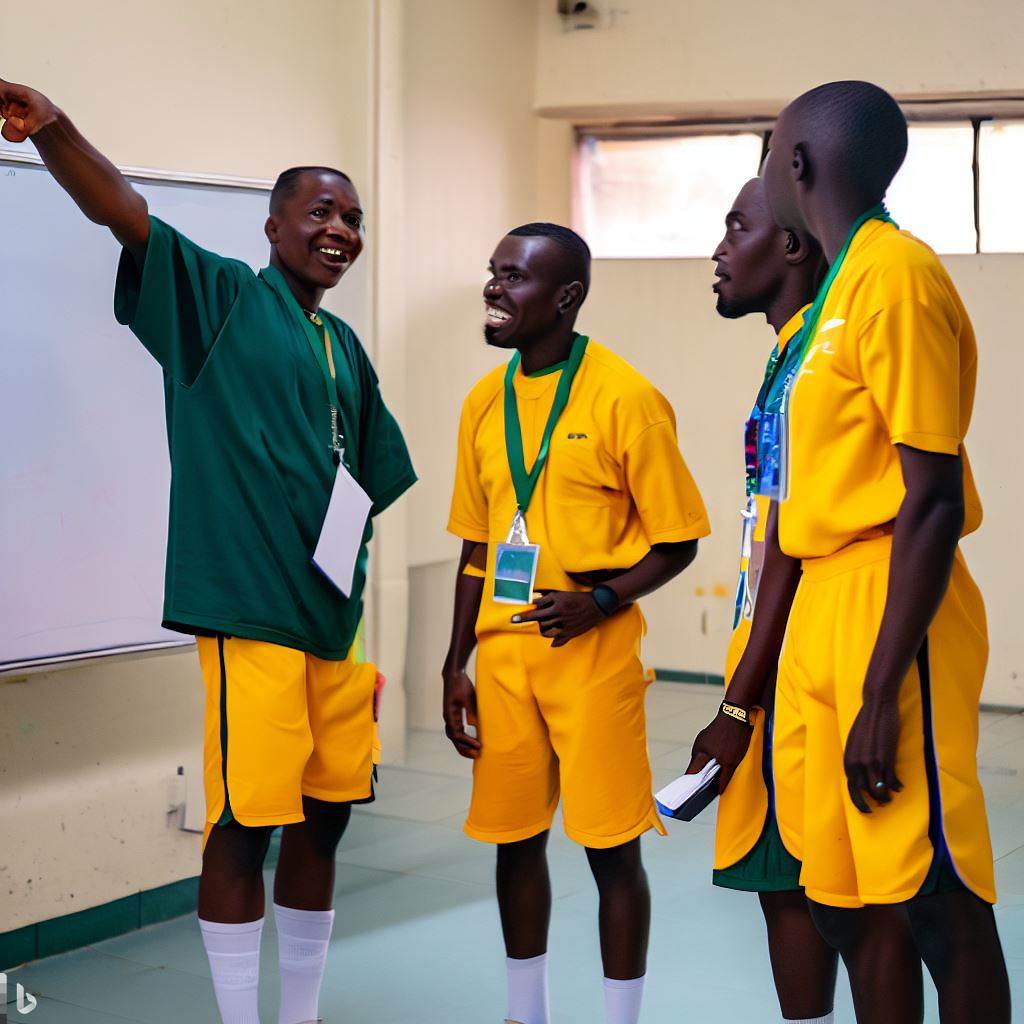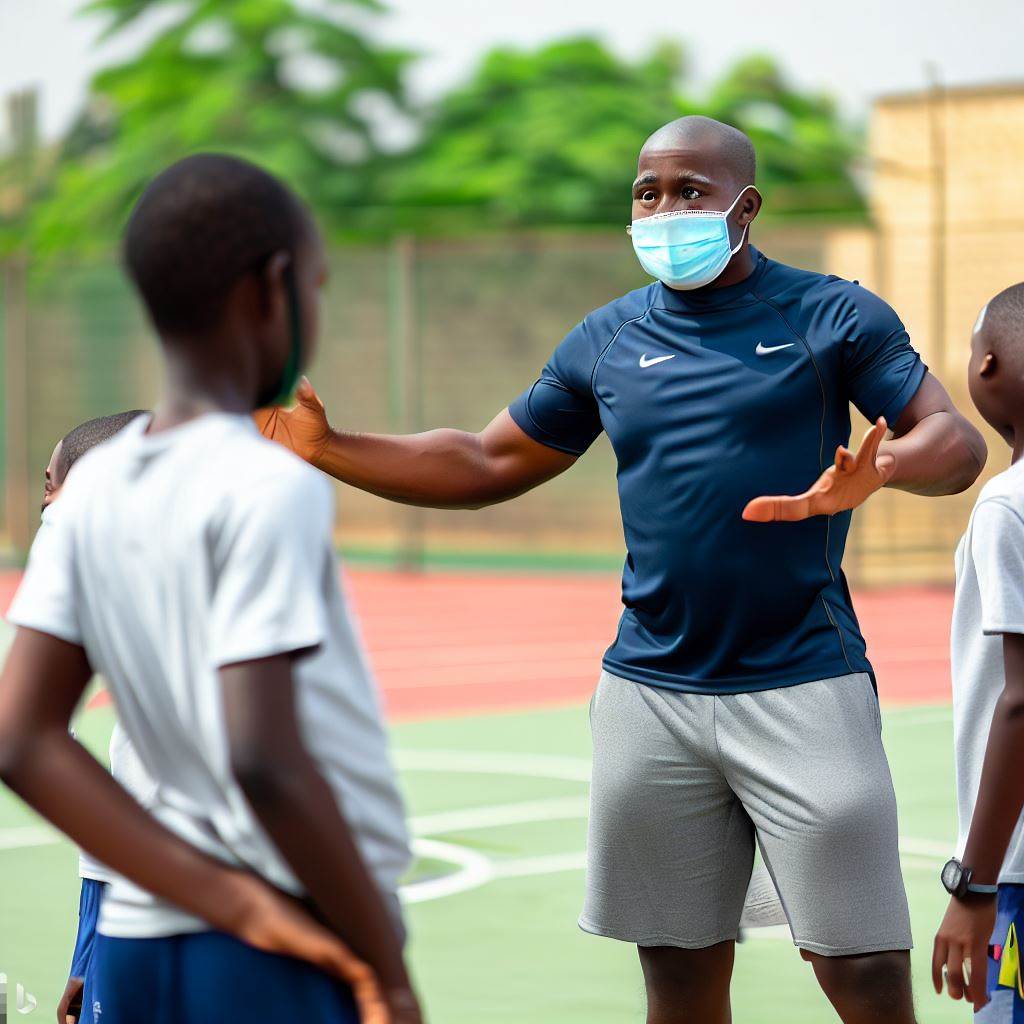Introduction
Continuing education is of vital importance for Physical Education (PE) teachers.
It allows them to stay updated with the latest teaching techniques, knowledge, and skills necessary for providing quality education.
This article will focus on the significance of continuing education specifically for PE teachers in Nigeria.
Thesis Statement
This article aims to explore the challenges, benefits, and strategies for PE teachers in Nigeria to pursue continuing education.
Continuing education plays a crucial role in the professional development of PE teachers.
It offers opportunities for them to enhance their teaching abilities and keep up with advancements in the field.
Moreover, continuous learning allows teachers to adapt to the changing needs of students and provide better educational experiences.
In Nigeria, PE teachers face numerous challenges when it comes to pursuing continuing education.
Limited funding, lack of access to professional development programs, and inadequate support from institutions hinder their ability to engage in further learning.
Despite these challenges, there are significant benefits to be gained from continuing education for PE teachers in Nigeria.
It enables them to acquire new knowledge, improve teaching methodologies, and enhance their effectiveness in the classroom.
Furthermore, continuous learning ensures that PE teachers stay relevant and competent in their profession, thus contributing to the overall development of students.
To overcome the challenges faced, PE teachers can employ various strategies to pursue continuing education.
These include seeking financial assistance through grants or scholarships, utilizing online resources and platforms, collaborating with other professionals, and engaging in self-directed learning.
Such strategies can empower PE teachers in Nigeria to overcome barriers and contribute to their professional growth.
Most importantly, continuing education is crucial for PE teachers in Nigeria as it equips them with the necessary skills and knowledge to provide quality education.
Although challenges exist, the benefits of continuous learning are significant. By employing appropriate strategies, PE teachers can overcome these challenges and thrive in their profession.
Challenges Faced by PE Teachers in Nigeria
Lack of access to resources and opportunities for professional development
PE teachers in Nigeria often struggle to find and access the necessary resources and opportunities for their professional development.
Many schools lack adequate funding or infrastructure to support the growth and learning of their physical education staff.
Teachers need access to updated textbooks, research papers, and training materials to stay up-to-date with the latest teaching methods and trends in physical education.
However, these resources are often scarce and difficult to obtain, hindering the professional growth of PE teachers in Nigeria.
Additionally, the lack of opportunities for workshops, seminars, and conferences further limits the avenues for PE teachers to expand their knowledge and skills.
Without access to such events, teachers can feel isolated and unable to progress in their careers.
High workloads and limited time for additional studies
PE teachers in Nigeria face high workloads, which often leave them with limited time to pursue additional studies or engage in continuing education programs.
The heavy load of teaching multiple classes and managing extracurricular activities leaves little time for personal development.
Balancing teaching responsibilities with the demands of continuing education can be extremely challenging, leading to burnout and a lack of motivation among PE teachers.
This issue further exacerbates the lack of professional development opportunities available to them.
Financial constraints and limited funding for continuing education
Financial constraints pose a significant challenge for PE teachers in Nigeria seeking continuing education.
Many teachers struggle to afford the costs associated with attending workshops, conferences, or acquiring updated educational resources.
The limited funding allocated for physical education in schools often prioritizes basic operational needs rather than supporting professional development initiatives.
This lack of financial support hinders the ability of PE teachers to pursue further education and improve their teaching practices.
Limited awareness and support from school administrators and policymakers
Another challenge faced by PE teachers in Nigeria is the limited awareness and support they receive from school administrators and policymakers.
Physical education is often not considered a priority in educational planning and decision-making processes.
School administrators and policymakers may underestimate the importance of physical education and fail to recognize the need for investing in the professional development of PE teachers.
This lack of support leads to a disconnect between the aspirations of PE teachers and the overall education system.
Without the backing of administrators and policymakers, PE teachers struggle to advocate for their professional development and bring about positive changes in the field of physical education in Nigeria.
In essence, PE teachers in Nigeria face significant challenges when it comes to continuing education.
The lack of access to resources, high workloads, financial constraints, and limited support hinder their professional development.
Addressing these challenges is crucial to ensure quality physical education in Nigerian schools and promote lifelong learning among PE teachers.
Read: A Day in the Life of a Nigerian PE Teacher: A Profile
Benefits of Continuing Education for PE Teachers
Continuing education significantly boosts PE teachers’ knowledge and skills, ensuring top-notch physical education programs for students.
It empowers them to integrate innovative teaching techniques, enhancing the learning experience.
Teachers’ motivation and job satisfaction soar as they acquire new skills, rekindling their passion for teaching and positively affecting their students.
Continuing education enhances classroom management skills, enabling effective discipline and a conducive learning environment, fostering student engagement.
Moreover, it opens doors to career advancement, paving the way for higher positions like department heads or educational consultants.
PE teachers can specialize in areas like sports psychology or nutrition through advanced courses, becoming invaluable assets.
Continuing education benefits Nigeria’s educational system, improving physical education and fostering a culture of fitness among individuals.
Ultimately, it plays a pivotal role in PE teachers’ professional development, spurring growth, better classroom management, career opportunities, and educational enhancement.
Read: Physical Education in Nigeria: Urban vs Rural Schools

Strategies for PE Teachers to Pursue Continuing Education in Nigeria
For PE teachers in Nigeria to pursue continuing education, there are several effective strategies to consider:
Seek free or low-cost professional development opportunities
Online courses and webinars
PE teachers can explore various online platforms that offer free or affordable courses and webinars on topics relevant to their teaching practice.
These online resources provide flexibility and accessibility, allowing teachers to learn at their own pace and convenience.
Educational resources on credible websites
There are numerous websites and online platforms that offer educational resources specifically designed for teachers.
These resources include lesson plans, teaching strategies, research articles, and professional development materials.
PE teachers should utilize these credible sources to broaden their knowledge and skills.
Collaborate with other teachers to organize in-house training sessions
PE teachers can collaborate with their colleagues to organize in-house training sessions.
This can involve sharing best practices, conducting workshops, and inviting experts in the field to deliver specialized training sessions.
By pooling their resources and expertise, teachers can provide valuable learning opportunities without high costs.
Utilize social media platforms and online communities to connect with other educators and share resources
Social media platforms and online communities provide a space for PE teachers to connect with colleagues, share resources, and engage in professional discussions.
These platforms allow educators to stay updated with the latest trends, exchange ideas, and seek advice from peers. Online communities also provide opportunities for collaboration and networking.
Apply for scholarships, grants, and sponsorships to support further studies
PE teachers should actively seek opportunities for financial support to pursue higher education or professional development courses.
Scholarships, grants, and sponsorships are often available from educational institutions, government programs, non-profit organizations, and corporate sponsors.
These funding options can significantly reduce the financial burden and make continuing education more accessible.
Advocate for the importance of continuing education to school administrators and policymakers
PE teachers should highlight the benefits and impact of continuing education to school administrators and policymakers.
By showcasing improved teaching techniques, enhanced student engagement, and positive outcomes, teachers can advocate for the importance of investing in ongoing professional development.
This can lead to increased support and resources allocated towards continuing education initiatives.
Essentially, PE teachers in Nigeria can pursue continuing education through various effective strategies.
By seeking free or low-cost professional development opportunities, collaborating with colleagues, utilizing social media platforms, applying for financial support, and advocating for the importance of ongoing education, teachers can enhance their skills, stay updated, and provide the best possible education to their students.
Read: Teaching Sports in Nigeria: A PE Instructor’s Perspective
Success Stories: Examples of PE Teachers Who Pursued Continuing Education in Nigeria
Inspiring stories of PE teachers who overcame challenges and successfully pursued continuing education
- James, a PE teacher in a rural Nigerian school, faced financial hardships but determinedly pursued his continuing education to improve his skills.
- Amina, a female PE teacher in a conservative community, overcame social barriers and prejudices to enroll in a specialized continuing education program.
- Emeka, a PE teacher in a low-income area, managed his time effectively and nurtured his passion amidst his daily challenges to excel in his coursework.
These inspiring stories of dedicated PE teachers overcoming adversities in pursuit of continuing education speak volumes about their commitment to professional growth.
James, Amina, and Emeka’s experiences demonstrate the immense value of continuing education for PE teachers in Nigeria.
Positive impact of their increased knowledge and skills on their teaching and students’ outcomes
Continuing education empowered PE teachers, improving their teaching and students’ outcomes. James used advanced sports science knowledge for innovative teaching.
He tailored training plans, boosting fitness and performance.
Amina’s specialized education challenged norms, promoting gender equality in sports, and encouraging all students to pursue athletics.
Emeka’s sports psychology expertise created a motivating environment. Mental conditioning enhanced confidence, reduced anxiety, and built resilience.
These teachers’ enhanced skills transformed methodologies and students’ lives, emphasizing the need for comprehensive continuing education in Nigeria.
Investing in PE teacher growth fosters physically and mentally healthy students, urging policymakers and administrators to support it.
Recognizing the link between PE teacher education and student outcomes, integrating it into development plans can bridge education gaps in Nigeria.
Continuing education’s undeniable impact, as seen in James, Amina, and Emeka’s stories, can catalyze positive change nationwide.
Read: Career Path: Sports Information Director to Media Manager
Conclusion
Main points discussed in the article
Throughout this article, we have explored the importance of continuing education for PE teachers in Nigeria.
We discussed the various challenges they face, such as outdated curriculum and lack of resources.
We also highlighted the benefits of ongoing professional development, including improved teaching practices and the ability to keep up with current trends in physical education.
The importance of continuing education for PE teachers in Nigeria
Continuing education is crucial for PE teachers in Nigeria as it helps them enhance their skills, knowledge, and understanding.
It enables them to provide quality physical education to students, promoting a healthy and active lifestyle.
Furthermore, it empowers teachers to become change agents within the education system and advocates for support and improvement.
Opportunities for professional development and advocate for support
To all the PE teachers in Nigeria, I urge you to actively seek out opportunities for continuing education.
Attend workshops, conferences, and training programs that can equip you with the latest teaching techniques and knowledge.
Additionally, use your voice to advocate for further support from the government, educational institutions, and stakeholders.
Together, we can enhance physical education in Nigeria and empower our students to lead healthier lives.
Remember, your commitment to professional growth will directly impact the lives of countless students.
Let us embrace the power of continuing education and work towards a stronger future for physical education in Nigeria.




